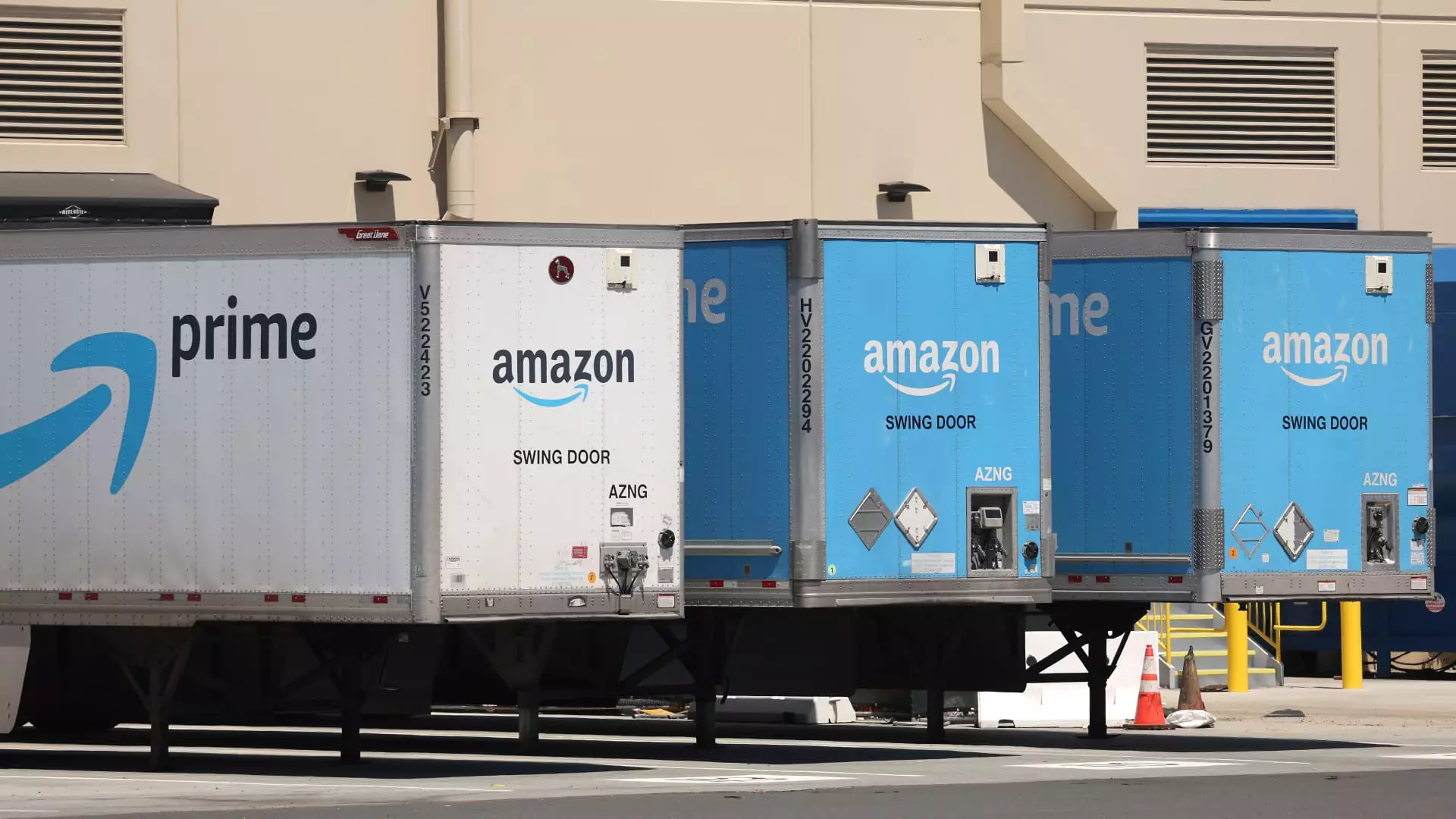In an alarming twist of fate that unfolded dramatically across California since 2021, organized crime is morphing into a rogue version of the gig economy, as members of an Armenian crime ring have brazenly made off with over $83 million worth of goods from Amazon. Posing as legitimate truck drivers, they pulled off a heist of staggering proportions, swiping not just trinkets but essential household items that most consumers take for granted. When everyday life becomes entangled in such elaborate criminal schemes, we are forced to confront a question: have we reached a point where the integrity of the marketplace is in jeopardy?
Cargo theft has surged to epidemic proportions, costing the U.S. retail sector an estimated $1 billion each year. This statistic is not merely a backdrop; rather it showcases how audacious and sophisticated the criminal elements have become. The methods employed by these fraudsters are disturbingly well-planned, raising an eyebrow over how easily law enforcement remains outmaneuvered. Indeed, the complaint filed by the Department of Justice paints a vivid picture: these criminals operated several transport companies—dubbed self-styled carriers—merely vehicles of their own nefarious aspirations. This is a clear reflection of how organized crime is evolving to exploit modern conveniences.
The Impact on Retail and Consumers
What makes this incident particularly troubling is its ripple effect across the broader landscape of retail and e-commerce. With Amazon at the forefront of this scandal, it provides a critical lens through which we can examine the inherent vulnerabilities of online shopping platforms. They are not just e-commerce giants; they are also fast becoming logistical nightmares plagued by stealthy syndicates. As the channels of distribution expand and diversify, the avenues for exploitation also become proportionately greater.
Amazon’s response has been to double down on efforts to track and eliminate fraudulent activities, yet the temporary effectiveness of these measures remains to be seen. The very nature of these thefts raises concerns about consumer trust. Reports suggest that some third-party merchants, caught in the crossfire of this crime wave, were unaware their products were pilfered. This precariousness poses a grave risk to countless small businesses that rely on Amazon for their livelihood, illustrating the insidious nature of such crimes. Trust cannot simply be bought back; it is something that must be consistently earned and cultivated.
From Crime to Carnage: The Broader Implications
Adding layers of complexity to this already chaotic situation is the disturbing backdrop of other serious allegations linked to the defendants—attempted murder, kidnapping, illegal firearm possession—it feels like the plot of a crime drama. The audacity to blend so many egregious acts into a single enterprise exemplifies a chilling reality: that our society, well into the 21st century, struggles to delineate between legitimate business operations and rampant criminality.
The DOJ’s investigation, reportedly aided by Amazon’s internal teams, reveals the intricate nature of modern criminal syndicates that exploit gaps in logistics and virtual marketplaces. As we stand on the threshold of new technological advancements, the risks amplify. A ‘self-driving’ nature of technology, if you will, leads to vulnerabilities that potentially undermine the very framework within which our economy operates.
Rethinking Responses
What should be done? A thought-out, more collaborative effort between tech firms and law enforcement agencies is essential. Fraud is not only a wrongdoing but a systemic failure, reflecting the inadequacies of existing security measures. It is imperative to reimagine the processes that govern how products are tracked, delivered, and sold. If anything, this chaotic event should serve as a cautionary tale about the extent to which those entrenched in criminal activity are willing to go, and urge stakeholders to work together against these existential threats.
The fallout from these crimes transcends monetary loss; it fundamentally challenges our understanding of what it means to shop in a trusted marketplace. As we confront this unacceptable reality, it is crucial to acknowledge that the fight against organized crime in e-commerce is far from over. The stakes are high, and we must tackle this modern-day conundrum with the urgency and seriousness that it demands.

Leave a Reply